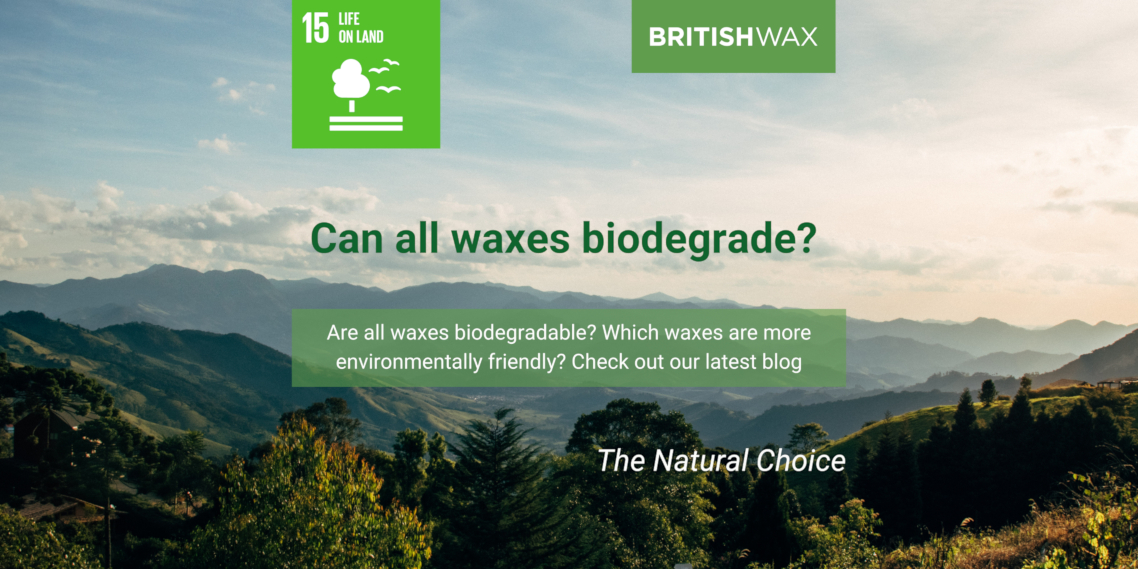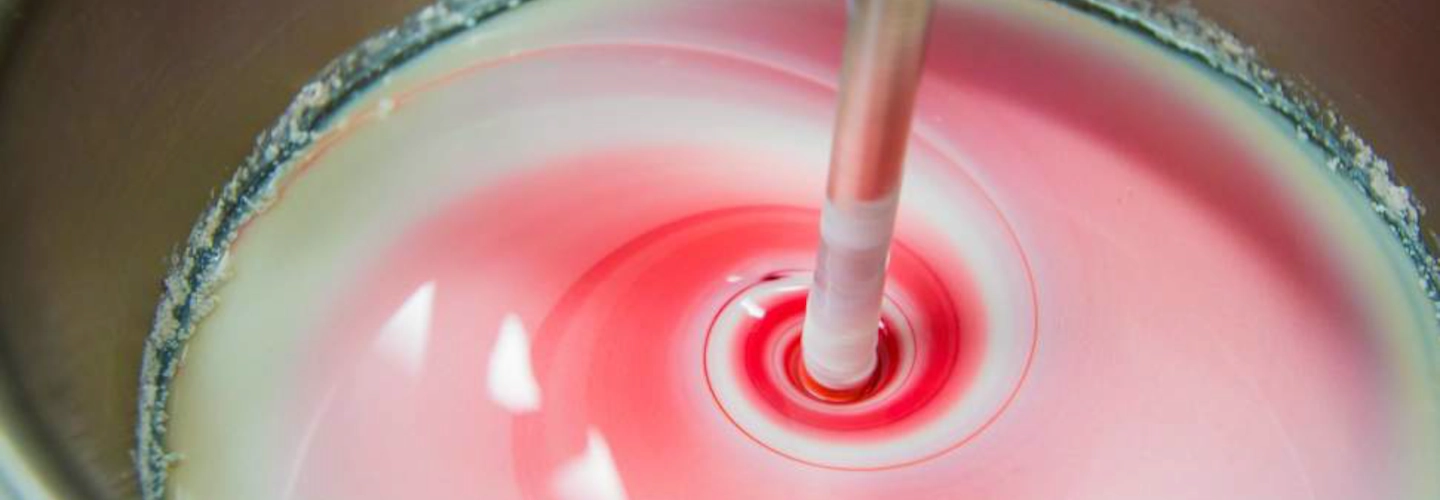Your basket is currently empty!
Is Wax Biodegradable?

One aspect to consider in the sustainability of a wax is its end of life or the ‘grave’ in the ‘Cradle-to-Grave’ Life Cycle Assessments. Sometimes it is viable to reuse or recycle a wax to create a ‘Cradle to Cradle’ circle, but often disposal, and therefore biodegradability is an important factor when considering which wax to use in a candle, cosmetic or a technical coating application.
Not all waxes are readily biodegradable and can persist in the environment for long periods, contributing to pollution or threatening marine and terrestrial wildlife via ingestion. Being aware of which waxes are and are not readily biodegradable is the first step.
Biodegradability of waxes
Biodegradation is the natural breakdown of a material by microorganisms such as bacteria and fungi. Biodegradability therefore refers to the ability of a material to be broken down into basic compounds such as water, carbon dioxide and minerals. This is normally measured in time, in certain environmental conditions such as terrestrial soil or a marine environment.
As of August 2023, we are not aware of any scientific studies that directly compare the biodegradability of waxes, so we have needed to interpret data from a number of different studies and draw conclusions from each in order to reach a reasonable conclusion.
Hydrogenated plant oils
Waxes produced by hydrogenating natural vegetable oils such as soybean oil, rapeseed oil, coconut oil, castor oil, palm oil, etc. are readily biodegradable. These waxy materials consist of mainly triglycerides, which are readily broken down by bacteria, especially in the presence of heat and water. While hydrogenation reduces their biodegradability to a small degree, they are still highly biodegradable.
True natural waxes
Carnauba Wax and Candelilla Wax are hard waxes that are exuded by plants to protect the surface of their leaves from environmental influences and prevent moisture loss. Rice Bran Wax and Sunflower Wax are waxy deposits present in rice bran oil and sunflower oil which are separated from the oil by winterization. Sumac Berry Wax and Japan Wax are obtained by pressing the berry of the Rhus Succedanea or Japanese wax tree. Beeswax is produced by honeybees as the construction material for honeycomb. Beeswax is designed to protect and seal brood chambers and provide storage containers for honey. In addition to microorganisms, wax moths, which are endemic to most parts of the world, feed on and metabolize beeswax.
While the proportions vary, these natural waxes have a significant proportion of esters, alcohols and free acids, all of which are known to biodegrade readily, although at a slower rate than hydrogenated oils.
Hydrocarbon waxes
Paraffin, Microcrystalline, Ceresine, Ozokerite, Fischer Tropsch and Polyethylene waxes are derived from crude oil, coal and natural gas, although some PE and FT waxes are now being produced from renewable sources. All these waxes are mixtures of hydrogen and carbon, and tend to be less readily biodegradable than fatty acids, triglycerides, alcohols and esters.
While laboratory studies have indicated that some microorganisms can metabolize paraffin wax under the right aerobic conditions, these conditions tend not to exist in normal terrestrial and marine environments. Studies have also shown microcrystalline waxes and petroleum jelly are less biodegradable than paraffin wax. We have been unable to find any specific studies on other waxes in this group but expect similar results.
So how can British Wax help?
British Wax has supplied natural waxes for more than 100 years. We are committed to our sustainable journey and have been actively replacing non-natural materials in our range for the last 20 years. Measured by total weight, more than 80% of materials purchased in 2022 were of natural origin (according to ISO 16128) and we are continually working on the rest. We can support our customers with natural and sustainable wax solutions that also deliver great performance. Please contact us to find out more.
Recent posts

With Christmas soon approaching, Monday the 22nd of December will be the last day we’ll be able to despatch with DHL. With the delays DHL…

Looking to make your bottles unique and eye-catching? Our bespoke bottle sealing wax is tailored to the customer’s precise specifications, and adds a distinctive touch that enhances quality…

We’re thrilled to announce that you can now purchase directly through our website with an online checkout! Currently, this e-commerce feature is available for a…